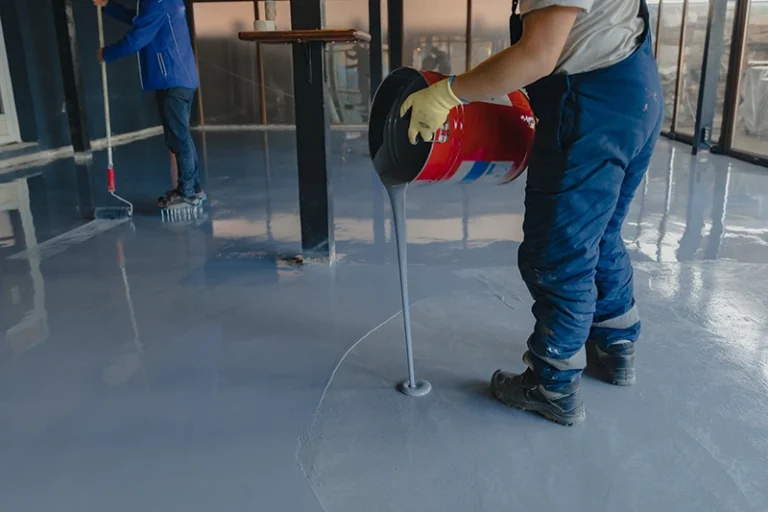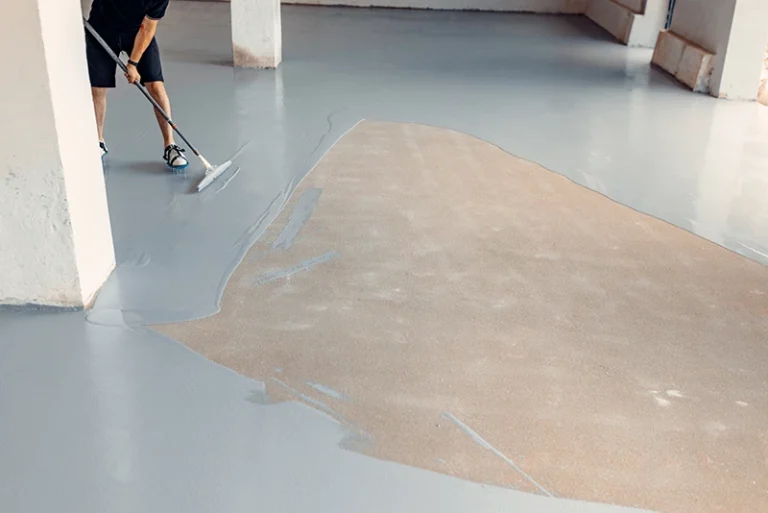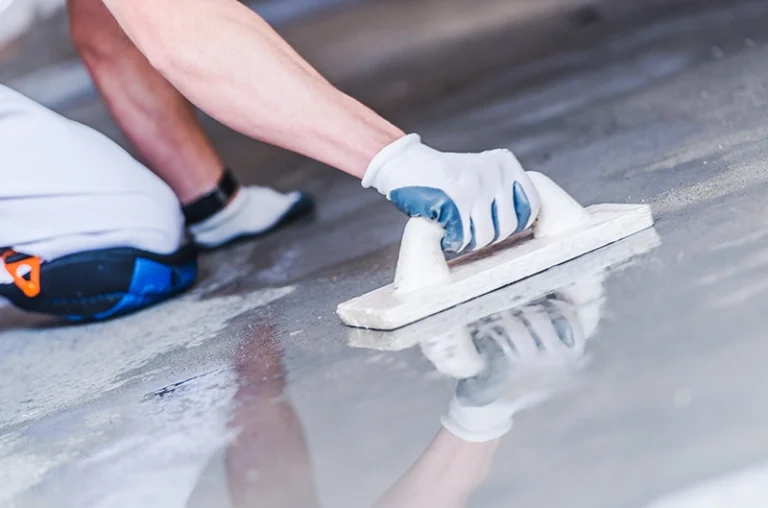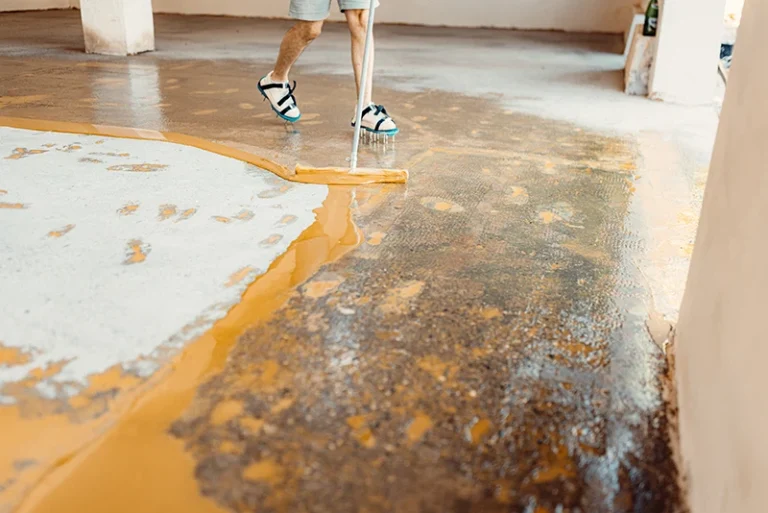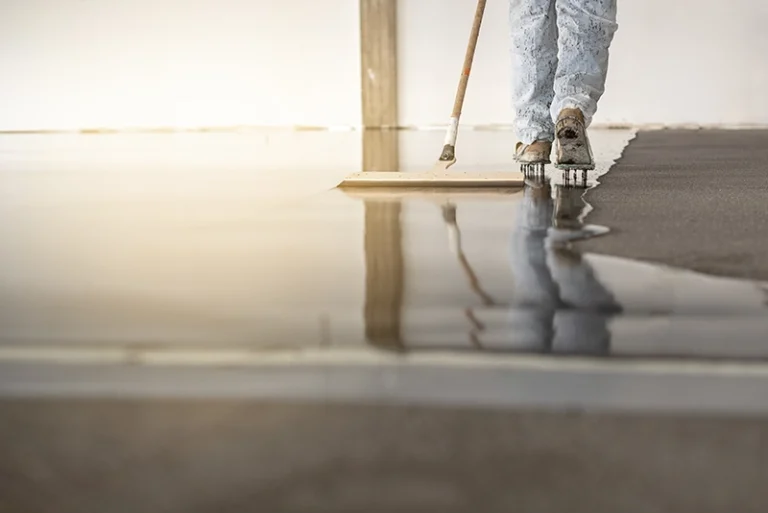What Are the Key Features of Industrial Epoxy Flooring?
Industrial environments demand flooring solutions that are tough, reliable, and built to withstand constant stress. Whether in warehouses, factories, manufacturing plants, or commercial facilities, floors are exposed to heavy machinery, chemicals, high traffic, and fluctuating temperatures.
That’s where industrial epoxy flooring comes in—a durable floor coating that offers both function and performance in demanding environments. Designed for longevity and safety, epoxy coatings provide more than just a smooth surface; they deliver vital protection and efficiency for industrial operations.
In this blog, we’ll highlight the key features of industrial epoxy flooring and why it’s a smart investment for businesses.
Exceptional Durability and Strength
One of the defining features of industrial epoxy flooring is its ability to handle constant wear and heavy loads without deteriorating.
- Supports heavy machinery and equipment: Epoxy creates a dense, hard surface that can withstand the weight and movement of forklifts, pallet jacks, and industrial tools. This helps prevent cracking or surface damage in high-traffic areas.
- Resists abrasion from frequent use: The topcoat protects the floor from scuffing, scratching, and scraping that typically occurs in busy industrial settings. This reduces the need for frequent repairs or resurfacing.
- Withstands impact and vibration: Dropped tools or heavy equipment won’t easily chip or dent epoxy-coated floors. This ensures the surface maintains its structural integrity under tough conditions.
This level of durability ensures that industrial operations run smoothly with minimal flooring maintenance or downtime.
Superior Chemical and Spill Resistance
Industrial settings often involve exposure to hazardous materials, oils, and cleaning agents. Epoxy flooring is designed to resist these substances.
- Protects against oils, solvents, and chemicals: Epoxy’s non-porous surface repels corrosive liquids, preventing long-term staining or damage. This is critical in facilities where spills are common.
- Simplifies cleanup and containment: Spilled substances stay on the surface, allowing for quick containment and removal. This reduces safety hazards and helps meet compliance standards.
- Prevents absorption into concrete: Bare concrete can soak in harmful liquids, leading to degradation and health risks. Epoxy acts as a barrier that seals and protects the underlying substrate.
With strong chemical resistance, epoxy flooring helps maintain a safe and efficient workspace in even the most demanding environments.
Slip Resistance and Workplace Safety
Safety is a major concern in any industrial facility, and epoxy flooring can be customized to improve traction and minimize risk.
- Includes anti-slip additives for better grip: Textured surfaces or grit can be added during installation to reduce the risk of slips and falls. This is especially useful in wet or oily conditions.
- Improves visibility through high-gloss finish: Epoxy coatings reflect light, enhancing visibility in work zones. This contributes to overall safety and productivity.
- Defines walkways and hazard zones: Epoxy can be applied in different colors or patterns to mark safe paths or restricted areas. This helps manage workflow and keeps employees aware of their surroundings.
Improving traction and visibility can significantly reduce workplace injuries and support compliance with OSHA and safety protocols.
Seamless Appearance and Easy Maintenance
Industrial epoxy flooring not only performs well but also enhances the cleanliness and organization of a facility.
- Creates a seamless and smooth finish: Unlike tile or wood, epoxy doesn’t have seams or joints that can trap dirt or harbor bacteria. This improves sanitation, simplifies sweeping or mopping, and supports compliance with industrial hygiene standards.
- Resists dust and debris accumulation: The sealed surface prevents dust and particulates from settling into the floor. This helps maintain air quality and cleanliness in the facility.
- Reduces cleaning time and cost: Routine maintenance is quick and easy, often requiring just water and mild detergent. This lowers labor costs and downtime.
A clean, professional-looking floor contributes to employee morale and leaves a positive impression on visitors and clients.
Customizable for Specific Industrial Needs
Epoxy flooring can be tailored to suit the unique needs of different industries and facility layouts.
- Available in various thicknesses and finishes: The epoxy system can be adjusted for light, moderate, or heavy-duty use depending on your operational demands. This ensures you get the right level of protection and performance.
- Offers color-coded and branded options: Epoxy can be tinted to match company colors or designate zones. This enhances organization and supports brand consistency.
- Can be formulated with static control properties: For industries like electronics or pharmaceuticals, epoxy can be made electrostatic-dissipative to protect sensitive equipment.
Custom solutions ensure that every facility can achieve the ideal balance of performance, aesthetics, and function.
Industrial epoxy flooring offers a powerful combination of durability, chemical resistance, safety, and ease of maintenance, making it one of the best choices for demanding environments. Whether you operate a warehouse, factory, or processing plant, epoxy flooring provides long-term protection and customization options to meet your facility’s specific requirements.
By investing in high-performance flooring, businesses can reduce maintenance costs, improve safety, and ensure operational continuity. If you’re seeking a reliable and professional-grade flooring solution, industrial epoxy should be at the top of your list.


